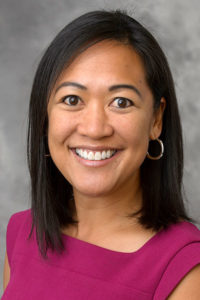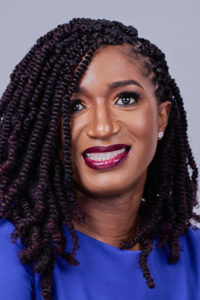
High-tech devices such as insulin pumps and continuous glucose monitors (CGM) can be effective tools to help diabetes patients manage their blood glucose. But access to these technologies, as well as the education and support necessary to successfully use them, remains a challenge for patients in under-resourced communities.
A multidisciplinary panel will discuss the barriers and potential solutions to overcome them during the session Technology Education in Underserved Populations—Education Factors on Sunday, June 5. The session, which begins at 8:00 a.m. CT in La Nouvelle Orleans Ballroom B at the convention center, will also be livestreamed for virtual attendees.
Jasmine D. Gonzalvo, PharmD, CDCES, BC-ADM, Director of the Purdue University Center for Health Equity and Innovation, will discuss the important role that diabetes care and education specialists (DCES) can play in improving diabetes technology education in under-resourced populations.
“We know that access to diabetes technology is really limited in groups that are historically marginalized and represents one of the many health disparities we see in diabetes for people from racial and ethnic minority groups. There are innumerable barriers to overcome to improve outcomes,” she said.
Many of the barriers are modifiable, Dr. Gonzalvo said, and diabetes care and education specialists are uniquely positioned to identify them and provide the necessary education, support, and guidance to overcome them.

“One of those modifiable barriers may be in the insurance coverage space,” Dr. Gonzalvo said. “Many diabetes care and education specialists have become adept at navigating the prior authorization process, or navigating an appeal, or trying different strategies to get devices approved. There are behind-the-scenes approaches that diabetes care and education specialists can use to facilitate access and overcome barriers.”
Another modifiable barrier, she said, is the use of the technology itself.
“Being familiar and up-to-date with diabetes technology is the bread-and-butter for the DCES and we are a fantastic source of information in terms of how to use the CGM or the pump, for example,” Dr. Gonzalvo said. “There are many layers to successfully accessing and sustaining continued use of technology, particularly in these populations, by taking a person-centered, shared decision-making approach. Diabetes care and education specialists can help people with diabetes navigate through those layers.”
Because there are many layers to the barriers limiting access and education—some logistical, some systemic—there is no “one-size-fits-all” program or approach to overcome them, said Vivian N. Ayuk, PharmD, CDCES, Chief Executive Officer of Sorogi Health, who will discuss the importance of tailoring community-based diabetes education and support services to the populations and communities they serve.
“We know how much people with diabetes can benefit from technology use. We also know that improved access and more effective outreach and education is needed if we’re going to really improve health outcomes for people who are in underserved communities,” she said. “What works in one community may not work in another, so we need to continue to develop community-based programs and educational materials that reflect the people we want to help. Regardless of their socioeconomic status, everyone deserves access to the right technology at the right time, especially in a chronic condition like diabetes.”
The two other speakers for this session are: Anne L. Peters, MD, Director of Diabetes Programs and Associate Professor of Medicine at the University of Southern California Keck School of Medicine, who will present Diabetes Technology—Panacea Meets Reality; and Robin Littlejohn, MS, Research Scientist and Senior Human Factors Specialist at the MedStar Institute for Human Factors, who will discuss how human factors influence digital health for education of the underserved.
[sub-post-content]